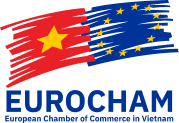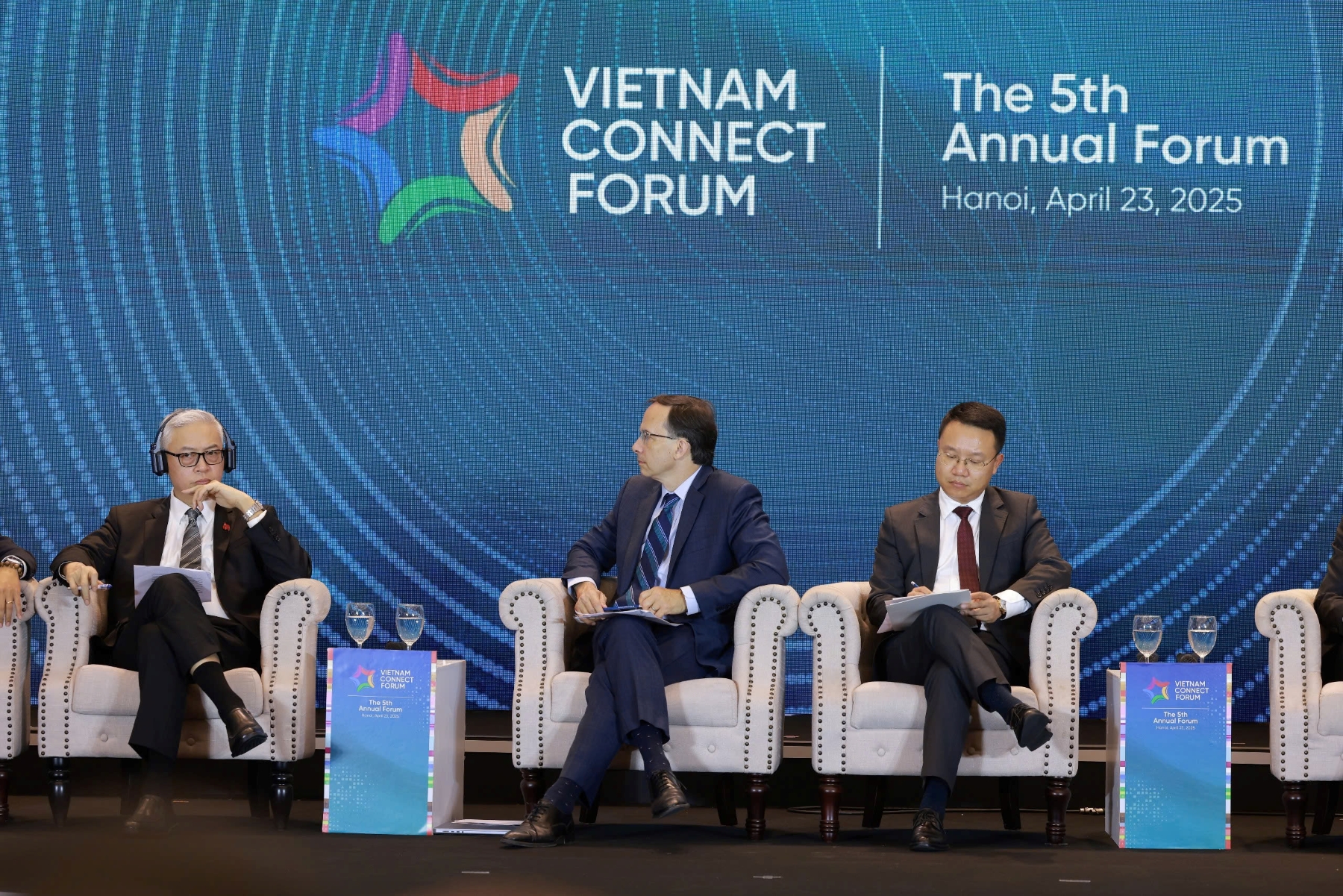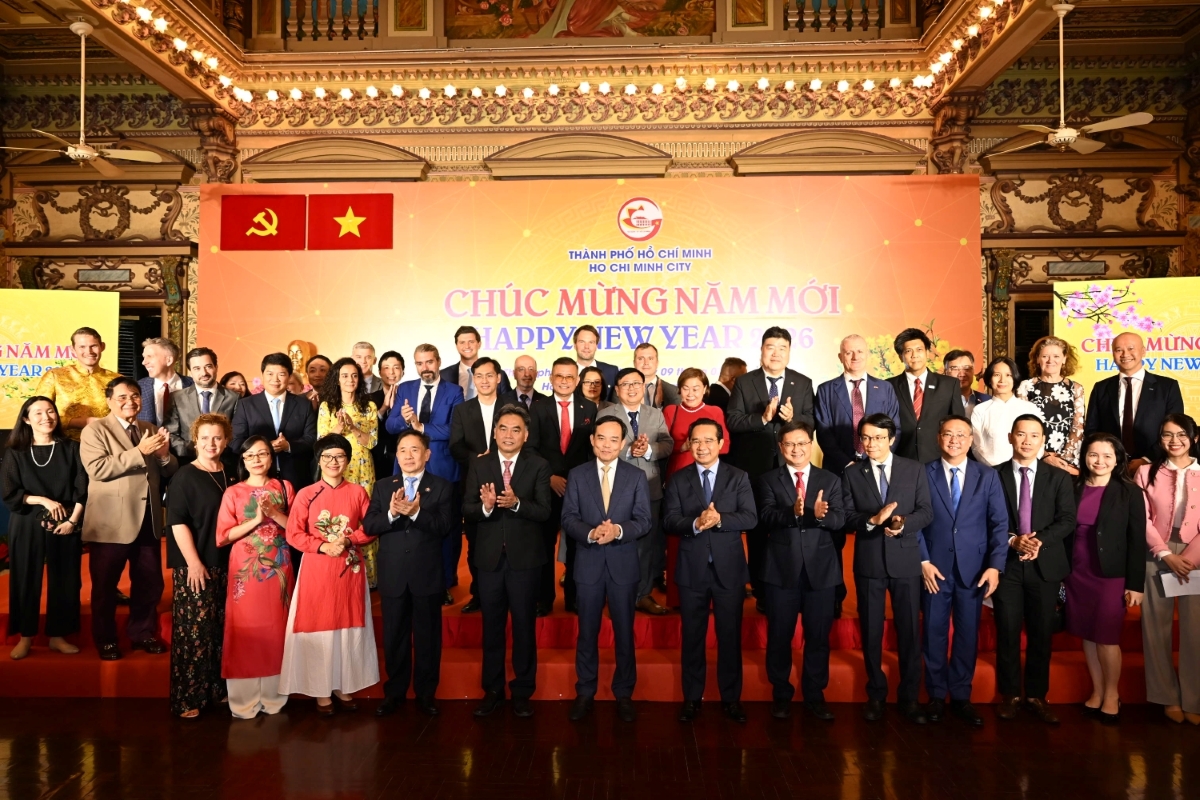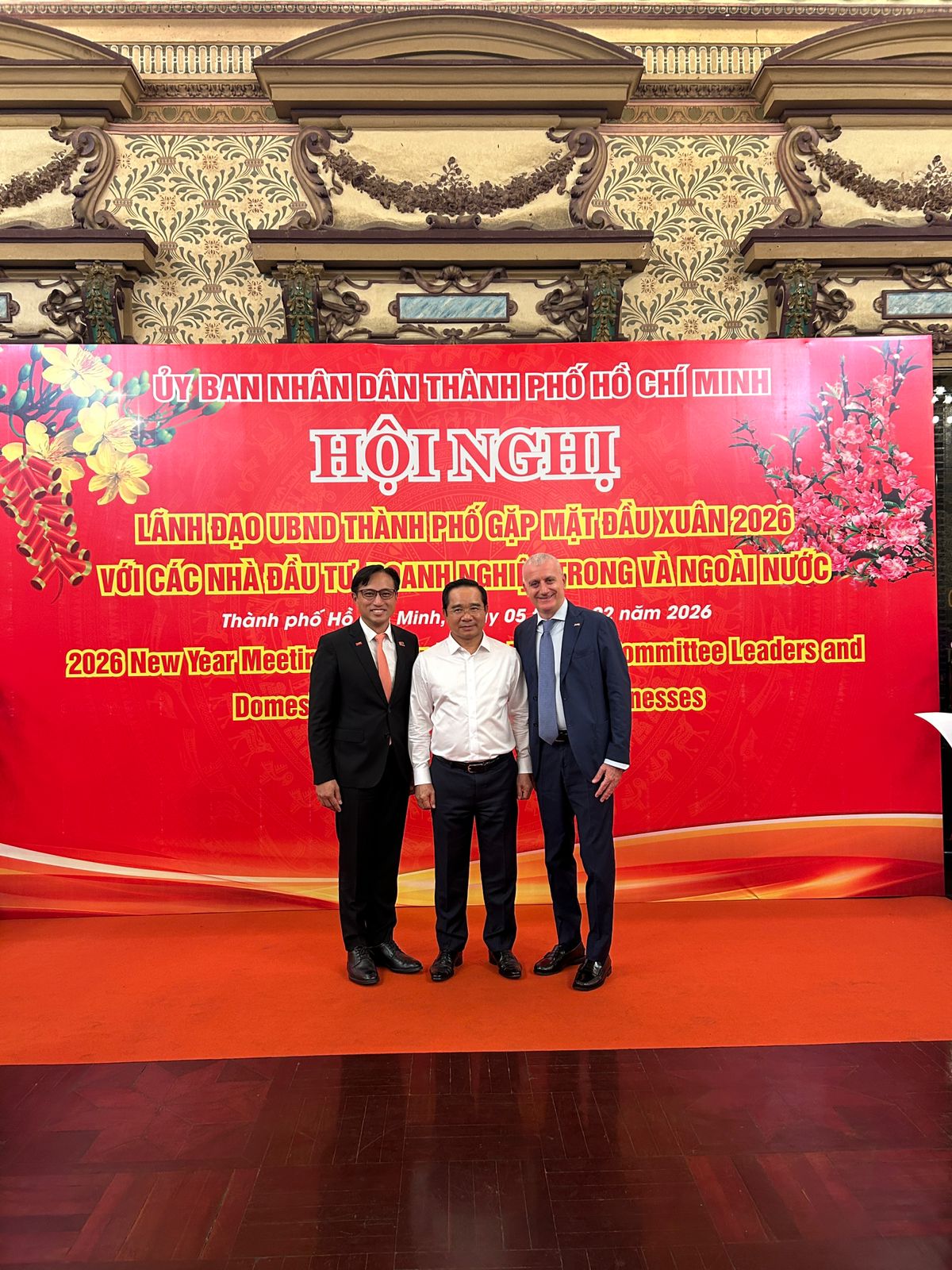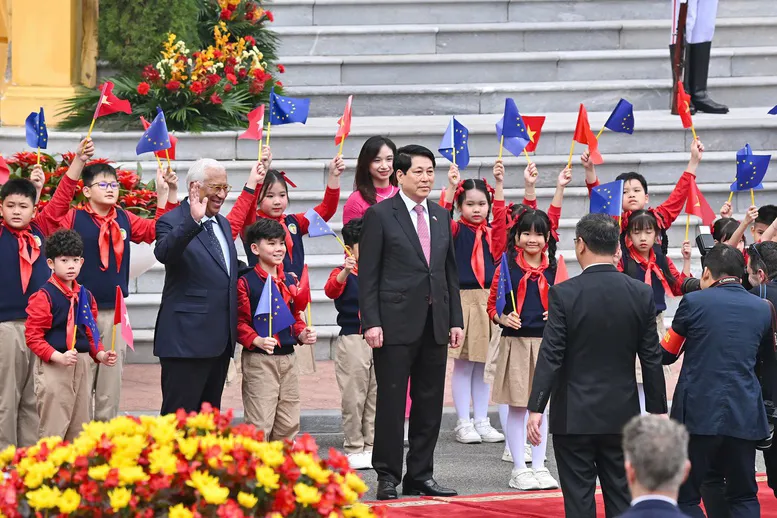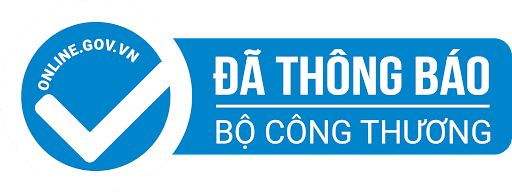On 23 April 2025, EuroCham Vietnam participated in the 5th annual Vietnam Connect Forum, co-hosted by the Institute for Policy and Strategy and Vietnam Economic Times. The event brought together policymakers, foreign and domestic enterprises, and provincial leaders to promote FDI integration, strengthen local participation in global supply chains, and enhance Vietnam’s competitiveness in international markets.
Bridging the Gap Between Domestic and Foreign Enterprises
Speaking at the Plenary Session, EuroCham Vice Chairman in charge of External Relations Mr. Nguyen Hai Minh emphasised that a key barrier to FDI attraction in Vietnam is the weak linkage between foreign and domestic enterprises. Local businesses often face challenges in product quality, management capacity, and meeting global standards—factors that limit their ability to partner with foreign investors.
He also noted that regulatory disparities—especially in investment, tax, and land—have further weakened the domestic sector compared to foreign firms that benefit from preferential policies.
Technology Transfer Requires Market Readiness
Mr. Minh argued that Vietnam should not expect passive technology transfer from FDI firms. Instead, it should treat technology transfer as a commercial transaction, where success depends on the domestic partner’s readiness to absorb and apply new technologies.
He recommended simplifying tax procedures and removing administrative bottlenecks around technology contracts to encourage innovation and the import of green, modern technologies.
Human Capital as Intellectual Infrastructure
In addition to technology, intellectual capital and workforce experience play a vital role in knowledge transfer. Mr. Minh urged reforms in visa and work permit policies for foreign experts, noting that rigid regulations can undermine efforts to attract talent, even as the country opens its doors to FDI.
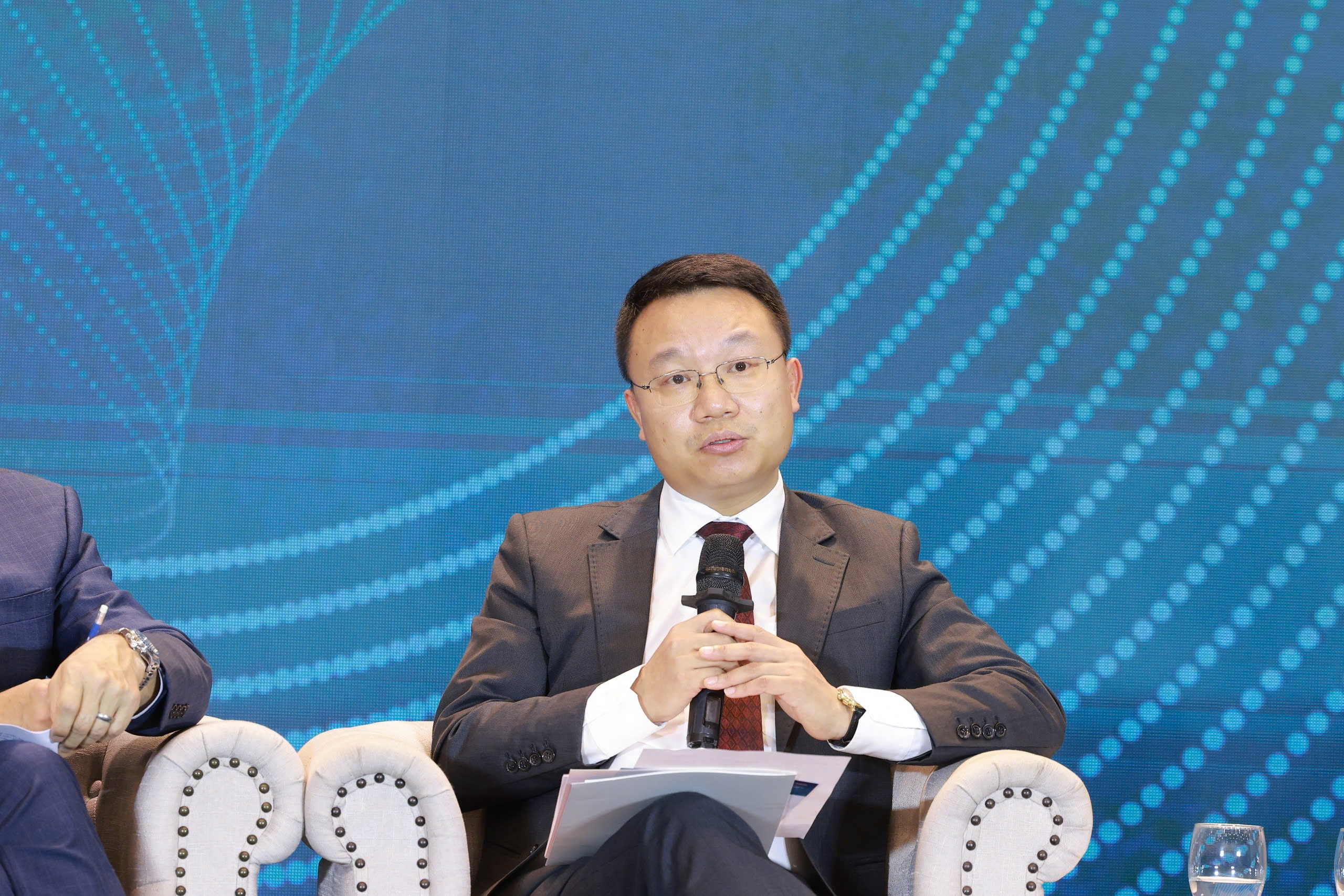
Toward a Regional Transshipment and Innovation Hub
Vietnam has the potential to evolve from a manufacturing base into a regional hub for logistics, finance, and after-sales services. But to do so, regulatory systems must adapt. Mr. Minh highlighted that rigid legal frameworks are holding back the development of modern transshipment models.
He called for the creation of free trade zones with flexible mechanisms for taxation, capital flow, and goods movement—alongside regulatory reforms in logistics, foreign exchange, and investment.
EuroCham Vietnam was honoured to contribute insights at this high-level forum alongside:
- Dr. Tran Thi Hong Minh, Director, Institute for Policy and Strategy Studies
- Mr. Nguyen Hong Son, Deputy Head, Central Policy and Strategy Committee
- Mr. Do Thanh Trung, Deputy Minister of Finance
- Dr. Chu Van Lam, Chairman, Vietnam Economic Times
- Representatives from Ministries of Agriculture and Environment
- Leaders from UOB, Fulbright University, Deloitte, Coca-Cola, SingCham, ADB, and more
As Vietnam looks to enhance its FDI strategy and deepen global integration, EuroCham remains a committed partner—offering practical insights, policy recommendations, and strong advocacy for a sustainable and globally connected business environment.
